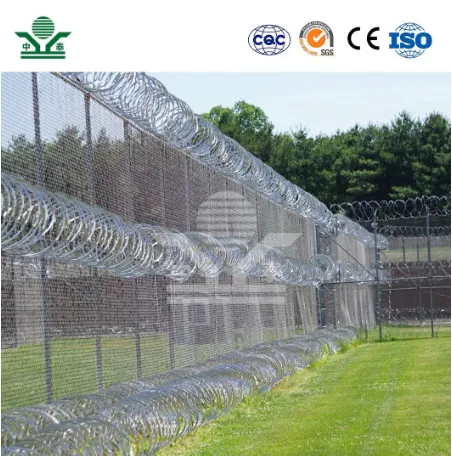Fixing Chain Link Fence A Comprehensive Guide
Chain link fences are popular for their durability and cost-effectiveness, serving various purposes such as securing properties, enclosing gardens, and providing safety for children and pets. However, like any structure, they can suffer wear and tear over time. Whether you’re dealing with a sagging fence, damaged mesh, or broken posts, fixing a chain link fence can often be a straightforward task if you approach it with the right tools and techniques. This article will guide you through the process of assessing and repairing your chain link fence.
Assessing the Damage
The first step in fixing a chain link fence is to assess the extent of the damage. Walk along the fence line and check for the following issues
1. Sagging or Leaning Panels Look for sections that are starting to sag due to soil erosion or damaged posts. 2. Rust and Corrosion Chain link fences are often coated with zinc to prevent rust, but damage to this coating can lead to corrosion. 3. Broken or Missing Links Check for torn sections or missing links that may compromise the fence's integrity. 4. Loose Posts Ensure that the posts are firmly set in the ground. If they wobble or lean, they may need to be reset or replaced.
Tools and Materials
Before starting your repair, gather the necessary tools and materials. You will typically need
- Pliers - Wire cutters - A wrench - A shovel - Replacement chain link fabric - New fence posts (if needed) - Concrete (for securing posts)
Repairing the Fence
If you notice sagging sections, first check the fence posts. If they are loose, it may be necessary to dig around them and add concrete for stability. For temporary sagging
- Use a tension wire to pull the section back into place. - Attach the wire to the bottom of the fence and secure it to a sturdy anchor point, adjusting until the fence is taut.
fixing chain link fence

2. Addressing Rust Issues
For rusted areas, you can often restore the fence with a little effort
- Use a wire brush to remove rust from affected areas. - After cleaning, apply rust-inhibiting paint to protect the metal. - If the damage is extensive, consider replacing the affected sections.
3. Repairing Broken Links
For broken links, the process is straightforward
- Use wire cutters to remove the damaged section. - Measure and cut a piece of replacement chain link fabric, ensuring it matches the existing mesh. - Attach the new fabric using ties or wires to secure it tightly to the existing fence.
4. Replacing Posts
If a post is too damaged to restore, it should be replaced
- Dig out the old post, ensuring to clear enough soil for your new post. - Insert the new post, ensuring it is level, then fill the hole with concrete for added stability. - Allow the concrete to cure according to manufacturer instructions before reattaching the fence fabric.
Conclusion
Fixing a chain link fence can seem daunting, but with careful assessment and a little DIY effort, most repairs are quite manageable. Regular maintenance and prompt attention to minor issues can prolong the lifespan of your fence, ensuring that it continues to serve its purpose effectively. Whether your needs are aesthetic or practical, a well-maintained chain link fence will not only enhance your property’s security but also its overall appearance. So, roll up your sleeves, and start fixing that fence!
-
Turn Down the Noise: The Future of Highway Sound Barriers
NewsApr.09,2025
-
Silence the Sound: The Power of Highway Noise Barriers
NewsApr.09,2025
-
Reduce Road Noise Effectively with Highway Noise Barriers
NewsApr.09,2025
-
Noise-Free Living: How Highway Barriers Make a Difference
NewsApr.09,2025
-
Engineered for Silence: Highway Noise Barriers for Every Road
NewsApr.09,2025
-
Effective Noise Control: Highway Barriers for a Quieter Tomorrow
NewsApr.09,2025
Subscribe now!
Stay up to date with the latest on Fry Steeland industry news.

